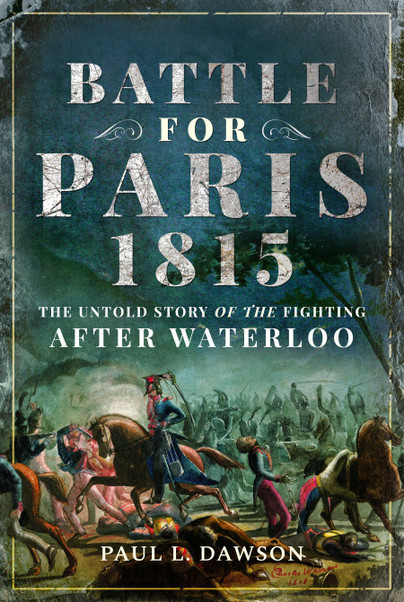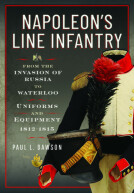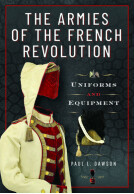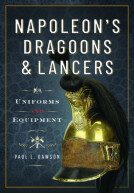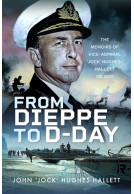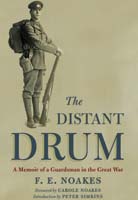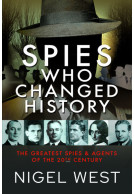Battle for Paris 1815 (Hardback)
The Untold Story of the Fighting after Waterloo
(click here for international delivery rates)
Order within the next 8 hours, 53 minutes to get your order processed the next working day!
Need a currency converter? Check XE.com for live rates
| Other formats available - Buy the Hardback and get the eBook for free! | Price |
|---|---|
| Battle for Paris 1815 ePub (16.5 MB) Add to Basket | £6.99 |
On the morning of 3 July 1815, the French General Rémi Joseph Isidore Exelmans, at the head of a brigade of dragoons, fired the last shots in the defence of Paris until the Franco-Prussian War sixty-five years later. Why did he do so? Traditional stories of 1815 end with Waterloo, that fateful day of 18 June, when Napoleon Bonaparte fought and lost his last battle, abdicating his throne on 22 June.
So why was Exelmans still fighting for Paris? Surely the fighting had ended on 18 June? Not so. Waterloo was not the end, but the beginning of a new and untold story.
Seldom studied in French histories and virtually ignored by English writers, the French Army fought on after Waterloo. At Versailles, Sevres, Rocquencourt and elsewhere, the French fought off the Prussian army. In the Alps and along the Rhine other French armies fought the Allied armies, and General Rapp defeated the Austrians at La Souffel – the last great battle and the last French victory of the Napoleonic Wars.
Many other French commanders sought to reverse the defeat of Waterloo. Bonapartist and irascible, General Vandamme, at the head of 3rd and 4th Corps, was, for example, champing at the bit to exact revenge on the Prussians. General Exelmans, ardent Bonapartist and firebrand, likewise wanted one final, defining battle to turn the war in favour of the French.
Marshal Grouchy, much maligned, fought his army back to Paris by 29 June, with the Prussians hard on his heels. On 1 July, Vandamme, Exelmans and Marshal Davout began the defence of Paris. Davout took to the field in the north-eastern suburbs of Paris along with regiments of the Imperial Guard and battalions of National Guards.
For the first time ever, using the wealth of archive material held in the French Army archives in Paris, along with eyewitness testimonies from those who were there, Paul Dawson brings alive the bitter and desperate fighting in defence of the French capital. The 100 Days Campaign did not end at Waterloo, it ended under the walls of Paris fifteen days later.
An essential book in a library on Napoleonic themes.
Miniaturas JM
Read the full review here
Story of the final battles after Waterloo have been strangely missing, particularly in the English language. The author has provided a very readable account of the Battle for Paris and final engagements. – Highly Recommended.
Firetrench
Read the full review here
The author has spent a great deal of time studying the French sources, so his work on that side of the campaign is based on solid archival research. He gives the French political leaders more credit than is often the case, acknowledging that they had a valid reason to avoid much further conflict.
History of War
Read the full review here
Have you ever wondered what happened after the battle of Waterloo?
Army Rumour Service (ARRSE)
Well, this book has all the answers.
Read the full review here
I had never even thought of what happened after Napoleon capitulated in 1815, and Paul Dawson is right when he says that what he describes was never taught in British school history lessons. Was this because the British were no longer involved in the conflict after British troops secured the capture and imprisonment of Napoleon? Because we were involved it never happened? Nowadays, with instant global communications, things are different. Maybe no one thought it relevant to inform the British people that the French were still fighting the Prussians and the Austrians elsewhere in Europe. At least Paul has now set the record straight!
Books Monthly
"This is the fourth in Paul Dawson’s series of books on the actual events of 1815 and in my view is the best in the series."
Friends of the Waterloo Committee
For anyone seeking a full understanding of the end of the Napoleonic era this book is a must read. Paul Dawson’s tour de force of research, into previously rarely access French sources, really has produced the previously untold story of Grouchy’s withdrawal/retreat from Wavre to Paris.
Clash of Steel
Read the full review here
Featured 'ON THE SHELF' by Neil Smith
Wargames Illustrated, September 2019
There can be no doubt that the author excels in finding and analysing sources that offer a different insight into Napoleonic history and in this book he has once again delivered evidence that conflicts with some accepted versions of Waterloo and its aftermath. He uses French Army archive sources to better understand the realities facing Grouchy during and immediately after Waterloo and documents the skilful retreat to Paris whilst examining the roles of key players. He has produced a very valuable insight into the events and has gone some way to challenge the ‘lazy history’ that for many years has been supported by accounts written long after the events described, and therefore tainted by the intervening demands of the times in which they were written. This is a book that demands to be read carefully, with a good large scale map by your side, to really understand the line of retreat to Paris. Recommended.
Michael McCarthy
Michael McCarthy. Battlefield Guide
About Paul L. Dawson
Paul L. Dawson BSc Hons MA MIFA FINS, is a historian and author, specialising in the French Army of the Napoleonic War. In addition, as a noted equestrian, this allows him to have a greater understanding of what was and what was not possible for cavalry and other troops which utilised horses. Working as a historical tailor producing museum-quality replica clothing gives him a unique insight into construction techniques of the period, as well the knowledge and ability to decipher documents from the period.
Second Treaty of Paris
20th November 1815
France and her allies agree France will pay indemnities after Battle of Waterloo, ending the Napoleonic Wars







